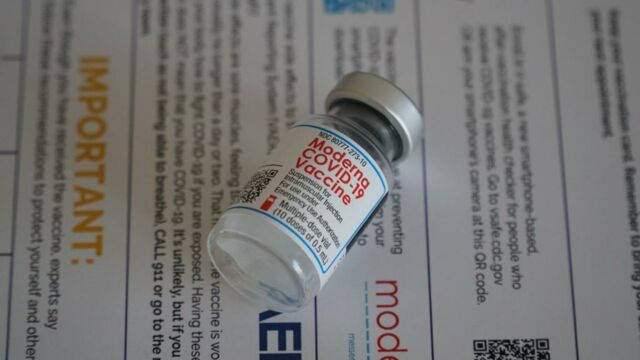COVID: American study reveals Pfizer and Moderna vaccines lose efficacy over time

Studies from CDC have shown that the rate of efficacy could drop over time for Pfizer and Moderna vaccines.
US health officials have announced that all Americans who have been fully vaccinated with either the Pfizer or Moderna vaccine should receive a booster shot either months after their second dose.
Discover our latest podcast
Previously, the Biden administration had advised only individuals who were immunocompromised, including those with organ transplants or advanced HIV infection, to get a booster jab. But now that suggestion has been extended to all residents of the US. The recommendation is based on new evidence which shows that vaccination protection decreases over time, particularly against the Delta variant.
More under this adMore under this adDecrease in efficacy
The study conducted by the US Centers for Disease Control and Prevention (CDC) found that between March and May, Pfizer and Moderna vaccines reduced the risk of COVID infection in nursing homes by 75%. However, after the Delta variant became widespread, the efficacy of the same vaccines reduced to 53%.
Another recent CDC study, published on 18 August, found that the vaccines that had an efficacy rate of 92% in 3 May, had fallen to 80% by 25 July—according to data collected from New York City. Researchers have noted that the Delta variant may be one of the reasons behind the drop. It could also be because earlier reports had increased rates of effectiveness because there were a lack of new variants, along with more safety precautions.
More under this adMore under this adOn the bright side, the vaccines were equally effective in preventing hospitalisations from May to July, as the reduced risk of hospitalisation increased from 92% to 95% during the same period. The US health authorities said in a statement on Wednesday:
Based on our latest assessment, the current protection against severe disease, hospitalization, and death could diminish in the months ahead, especially among those who are at higher risk or were vaccinated during the earlier phases of the vaccination rollout.More under this adMore under this ad
For this reason, we conclude that a booster shot will be necessary to maximise the protection induced by the vaccine and prolong its durability.
Boosters to offer greater immune protection
Data from Pfizer itself indicates that a third dose can help maintain a high level of protection against current variants when administered 6 to 12 months after the second injection.
More under this adMore under this adCountries like the US, UK, and France have already started advising booster shots to the population, but the World Health Organisation (WHO) has taken a strong stance against their move since a majority of the global population is still awaiting their first jab. Dr. Mike Ryan, director of the WHO’s health emergency programme, said:
We’re planning to hand out extra lifejackets to people who already have lifejackets, while we’re leaving other people to drown without a single lifejacket.More under this adMore under this ad